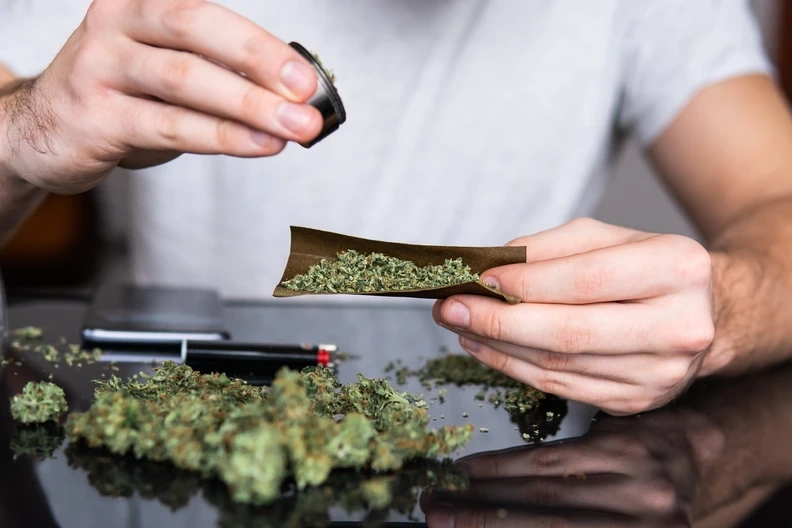Drug crimes are those offenses related to controlled substances, that involve illegal drugs. Illegal substances have been declared illicit to use, distribute, or possess without the authorization of federal or state laws. Getting caught with illegal drugs can lead to offenses which is why it is important to work with a drug defense attorney to help in the case.
These drugs are typically classified under schedules that rank the drugs in terms of how dangerous they can be to people and society. Illicit drugs are subject to intensive control and monitoring by the federal and state government, to make sure that the overall public is shielded from the risks of those drugs.
If you're charged with possession of controlled substances, either for private use or with intent to sell, a drug defense attorney can determine which defenses might apply to your case. Some of the legal defenses would challenge the evidence, testimony, or stated facts by the prosecution. Other strategies would target procedural errors, and a few defendants challenge drug possession charges on the idea of an affirmative defense.
Types of Defenses That Can Be Used in Court
Unlawful Search and Seizure
The Fourth Amendment to the US Constitution guarantees the proper due process of law. It includes the lawful search and seizure procedures before an arrest. Issues about the seizure and search procedures are often used as drug possession defenses by a drug defense attorney.
Illicit drugs found in "plain view," like a car's dashboard after a legal traffic stop, could also be seized and used as evidence. However, substances found within a car trunk after opening it with a crowbar, with the possibility that the suspect did not give permission, cannot be used as evidence. If the defendant's Fourth Amendment rights were violated, then the drugs cannot be used at trial, therefore the charges typically are dismissed.
Drugs Belonging To Someone Else
A common defense to any crime charge is to easily say the defendant has no knowledge about it. Another defense is to claim that the drugs didn’t come from the defendant or that the individual has no knowledge of how the drugs got into his or her property. As an example, a reliable drug defense attorney will pressure prosecutors to prove that the joint found within the car belonged to their client but the substance belonged to someone else.
Crime Lab Analysis
Just because it looks like cocaine or LSD doesn't suggest it necessarily is. The prosecution must prove that a seized substance is indeed the illicit drug it claims. This is done by sending the evidence to a criminal laboratory for analysis. The crime lab analyst then must testify at trial so as for the prosecution to form its case.
Missing Drugs
Another defense used is that the substances were missing. It is a necessity for crime lab analysis to have the substances present. The prosecutors who lose or otherwise lack the particular drugs for the case risk having their case dismissed. Drugs that were seized are often transferred before they go to the evidence locker, which is why it must not be assumed that the evidence may still exist during the trial.
Planted Drugs
Planting drugs on a person can be hard to prove since a law enforcer’s testimony has a lot of weight in the courtroom. Other police officers may also be reluctant to throw their fellow officers under the bus. The lawyer can make a motion that may require the department to release a complaint to the specific officer. This instance only happens when approved by the judge. This file contains the names and data of people who made the complaints, who can then be interviewed by an attorney or a personal investigator.
Entrapment
While enforcement officials often hold sting operations, entrapment occurs when officers or informants induce a suspect to commit a criminal offense he or she otherwise might not have committed. If the informant puts pressure on a suspect to pass drugs to a third-party affiliate, this can be considered as part of entrapment. As a rule, entrapment often occurs where the state will provide the substances related to the case.
Medical Marijuana Exception
The medical use of marijuana isn't a defense for federal drug possession court but could also be used in states’ trials where medical marijuana has been legalized. States that have those exceptions usually need the doctor’s recommendation. However, a number of those states also provide for an affirmative defense by those arrested on marijuana possession charges who are ready to show clear and convincing evidence of medical necessity.
If you're facing drug possession charges, you'll have defenses available to you that are not immediately apparent. Whether the police collected testimony without reading your rights, or whether the prosecutors have not preserved incriminating evidence, a criminal defense lawyer will often reveal the opening within the prosecutor's case. If you are facing legal charges, a drug defense attorney can help you navigate the judicial system.
Benari Law Group has decades of hands-on experience and a multipronged approach to using proven defense methods and tactics to help defendants. Benari Law Group is dedicated to upholding the 6th Amendment and providing the defendant with the right to competent counsel. At Benari Law Group, excellence is our only standard. We, the Benari Law Group firm give personalized attention to our clients. You’ll also have direct access to your attorney. You can contact Benari Law Group at 610-566-1006, through their website: benarilaw.com, or visit them at 142 Market St, West Chester, PA 19382.


